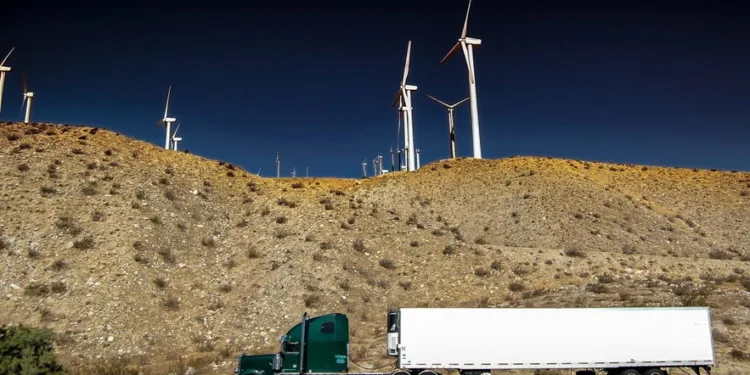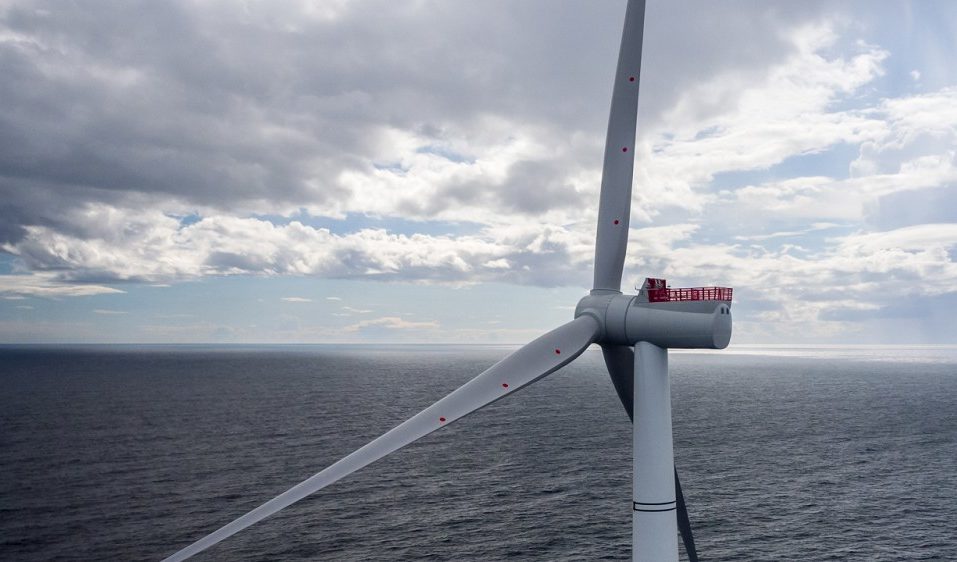The fallout from the ongoing demise of the California Advanced Clean Truck (ACT) rule is picking up more controversy as environmental groups are asking key engine industry companies and their trade group about their plans, and engine manufacturers’ views are starting to become public with the first known statement about the rule’s future from those OEMs.
The deal signed in July 2023 with California by the Engine Manufacturers Association (EMA) pledged that the group’s members, which includes such companies as diesel engine manufacturer Cummins Inc., would abide by the provisions of the ACT in exchange for, in part, the Golden State easing its then upcoming rules on nitrogen oxide (NOx) emissions and bring them in line with federal standards. The EMA also promised not to file any future litigation against the ACT.
The ACT is a mandate on OEMs to provide California with a rising percentage of zero emission vehicles (ZEVs) stretching into the 2040’s. Sixteen other states have agreed to follow the mandates in the ACT, making it a rule with reach far greater than just California.
But with the waiver that allowed the ACT to proceed now shelved by Congressional action under the Congressional Review Act (CRA)–though that move is under legal challenge from California–the question has been whether the deal, known as the Clean Truck Partnership (CTP), has any future.
(Coincidentally, a group of intervenors in the California case against the CRA action on Monday requested the litigation in the federal circuit court for the Northern District for California be dismissed. The intervenors are mostly associations of corn growers, whose ethanol markets are threatened by any move to ZEVs.)
The letter signed by the environmental groups, dated Monday, has no enforcement behind it. But what it did contain was a link to a letter sent by the EMA to the California Air Resources Board that expresses a growing skepticism with the CTP that it signed.
OEMs let CARB know their views
The letter had not been publicized by the EMA; there is no link to it on the organization’s website or statement about its contents. It was sent to CARB as that government agency considered (and ultimately adopted) amendments to its rules in the wake of the Congressional CRA action.
“Over the past several weeks, we the undersigned have grown increasingly concerned by your silence, equivocations, and statements undercutting the validity of the (CTP), an agreement initially championed by your companies,” the letter from the environmental groups said.
But the EMA has not been completely silent on the issue.The letter it sent to CARB was in connection with the now-approved proposal that involves, among other things, allowing OEMs to pool credits that have been generated by adoption of ZEVs where it has occurred, so that progress toward compliance would not be based just on credits generated in California.
As OEMs are loath to produce two separate lines of vehicles–one to meet the mandates of California and the group of 16, and the other to satisfy the rest of the country–the sheer size of the California market inevitably means its standards become the de facto rules for the country.
But the specifics of the amendments and the EMA’s views of them are less important than what the EMA said about the ACT going forward.
“None of the putative opt-in states has any authority to adopt or attempt to enforce the ACT regulations, as all such state actions have been and remain preempted,” the letter to CARB said. “Accordingly, CARB’s proposal to adopt a credit-pooling option for the opt-in states to use to facilitate their implementation of the ACT regulations is a moot exercise that provides no benefit and has no force or effect in any state. CARB should not adopt such preempted and legally inoperative amendments.”
The EMA then aimed its fire on what it says is the impact of the ACT, even in its now-dormant state.
Vehicles are there, not selling enough
EMA said its members that produce heavy duty on highway (HDOH) vehicles “have made significant monetary investments in electrified vehicle technology, along with ongoing significant investments in diesel vehicles,” the letter said. The members have promoted the sales of these vehicles, the EMA said, and have met the first requirements in California of the ACT.
“Despite those significant efforts, the demand for ZEV trucks is still minimal, and ZEVs account for only 4% of Class 4-8 trucks, which is less than half of the ACT mandate of 9%,” the letter said.
But echoing another criticism of the uncertainty created by the war over the ACT, the EMA said sales of conventional trucks also have been impacted. “For example, in 2024, new tractor registrations were down by 30% compared to prior years, and there was a 66% reduction in the registration of new current model year Class 4-8 trucks in 2024 compared to 2023,” the EMA wrote in its letter. “The impacts will only get worse if the ACT’s ZEV-sales mandates are allowed to continue to ratchet up year over year.”
Critics of the law have charged that the uncertainty means fleet owners will keep their older vehicles on the road for longer rather than buying a ZEV, resulting in the more polluting model years sticking around longer in a market unclear about the regulatory future.
“For all of the foregoing reasons, before proceeding with its proposed ACT amendments, CARB instead should engage in direct discussions with EMA and its members to address the lack of viability of the ACT regulations as a whole,” the group said in its closing statement.
The environmentalists’ letter was sent not only to the EMA, but also to Cummins (NYSE: CMI), Daimler Truck North America, Ford Motor (NYSE: F), General Motors (NYSE: GM), Hino Motors, Isuzu Technical Center of America, Navistar (which is now named International Motors under Volkswagen ownership),, PACCAR (NASDAQ: PCAR). Stellantis N.V. and Volvo Group North America.
The move by Congress to override the EPA waiver has “undermined the continuing viability and effect of the CTP,” the letter from the environmental groups said.
The environmental groups told the addressees of the letter that “this is no time for equivocation and backpedalling. The purpose of the Clean Truck Partnership is to provide a clear path forward for industry and the public despite federal policy churn.”
“We ask you to immediately confirm your strong commitment to the Clean Truck Partnership and rescind any statements to the contrary – and to reaffirm your concrete actions serving its goal of creating an affordable and effective path to abundant electric trucks,” the letter said. “We urge you to cease and denounce meritless attacks on the Partnership.”
There are 17 signatories to the letter, including such well-known groups as the Sierra Club and Public Citizen.
More articles by John Kingston
Averitt pay increase could be a sign of some acceleration in driver wages
Sequential numbers at diversified trucking operator TFI International may mark a turnaround
First legal steps taken, this time by WSTA, to untangle the legal knot of the Clean Truck Partnership
.
The post Future of Clean Truck Partnership now openly pitting OEMs versus environmentalists appeared first on FreightWaves.

















